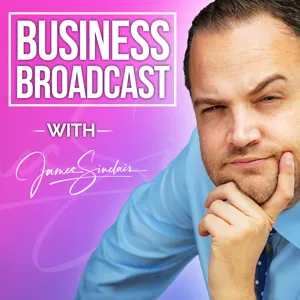How do you find high net worth individuals to invest in your property deals? Live at a Marketing Mastermind, Rob talks through some of the best tools and techniques you can use to engage with billionaires and other high-net-worth individuals. These are the people you need to get on board in your business but it can be difficult knowing where to start. From using Linkedin effectively to networking across different events are just two of the ways you can develop your contact list. If you are currently in search of finance for your deals and don't know where to start this is the place to start.
Key Takeaways
Finding people on LinkedIn is a good strategy for approaching high net worth individuals. An approach that doesn’t work well is to contact people through direct messages asking them up front for money. Everyone knows this is an annoying way of approaching people. You have to be strategic in your searches. Look to other people who are like the person you are targeting. You can start by connecting or following all these people.
Then put out content on your LinkedIn that will appeal to these people who you would like as investors. Curate your content to talk to that market. As long as you’re connected with them they will see your content. This will hopefully start a pull effect. It’s better to do that rather than pitching directly to people.
Attend Business Angel meetings, where there will be investors. There will be individual investors, people who represent funds, and single or pooled investors. You can either speak to the organiser and pitch your money directly but this isn’t always the best way to go about getting investments. I never pitched at events, I just networked and said that I was a property investor. This way you build up longer-term relationships with people which will be a better way of securing finance.
The problem with raising finance is that we think about the money only when we need it. This can feel a little bit desperate. People want to feel like they are wanted for their business experience rather than just for their money. Look for the money before you have the deals in advance, so you can spend time building a sustainable relationship.
You want to go to as many charity balls, and functions as possible. I went to lots of these and met a lot of really interesting people. They are fantastic events that raise a lot of money for charity and a good way to meet potential investors. It always better to get introductions from others if you can.
Search for people on Google. On Google that will give you similar individuals to whomever you have searched, similar to LinkedIn. Google all these people and follow them on Twitter, Facebook and all social media platforms. Then start commenting on their posts so they get to see your face, and name.
Finally, send them a handwritten letter. This gives you an edge, no one else is doing this at the moment. When was the last time that you received a handwritten letter in the post?
BEST MOMENTS
‘LinkedIn is a good strategy for approaching high-end net worth individuals.’
‘Getting connections with a billionaire might be hard, but it’s worth trying.’
‘Follow on LinkedIn means that you can see their content but they can’t see yours.’
‘Before you know it you’ll have hundreds of contacts in your LinkedIn black book.’
‘Curate your content to talk to that market.’
‘I’m very careful how I time introductions to others.’
‘Network at Angel meetings, but to the business outside of the room.’
‘Don’t be scared to reach out to your existing contacts.’
‘A lot of people do networking, and always follow up with them.’
‘People can always sense when you are desperate for money.’
‘You want to go to as many charity balls as possible.’
‘When was the last time that you got a handwritten letter through the post.’
[Business, mindset, entrepreneur, disruptors]
VALUABLE RESOURCES
https://robmoore.com/
bit.ly/Robsupporter
https://robmoore.com/podbooks
rob.team
ABOUT THE HOST
Rob Moore is an author of 9 business books, 5 UK bestsellers, holds 3 world records for public speaking, entrepreneur, property investor, and property educator. Author of the global bestseller “Life Leverage” Host of UK’s No.1 business podcast “Disruptors”
“If you don't risk anything, you risk everything”
CONTACT METHOD
Rob’s official website: https://robmoore.com/
Facebook: https://www.facebook.com/robmooreprogressive/?ref=br_rs
LinkedIn: https://uk.linkedin.com/in/robmoore1979
disruptive, disruptors, entreprenuer, business, social media, marketing, money, growth, scale, scale up, risk, property: http://www.robmoore.com









![Caffeine Cast: How to Find Find High Net Worths The Disruptive Way [Business, mindset, entrepreneur, disruptors]](https://www.podcastworld.io/podcast-images/disruptors-kt0uj0xy.webp)




